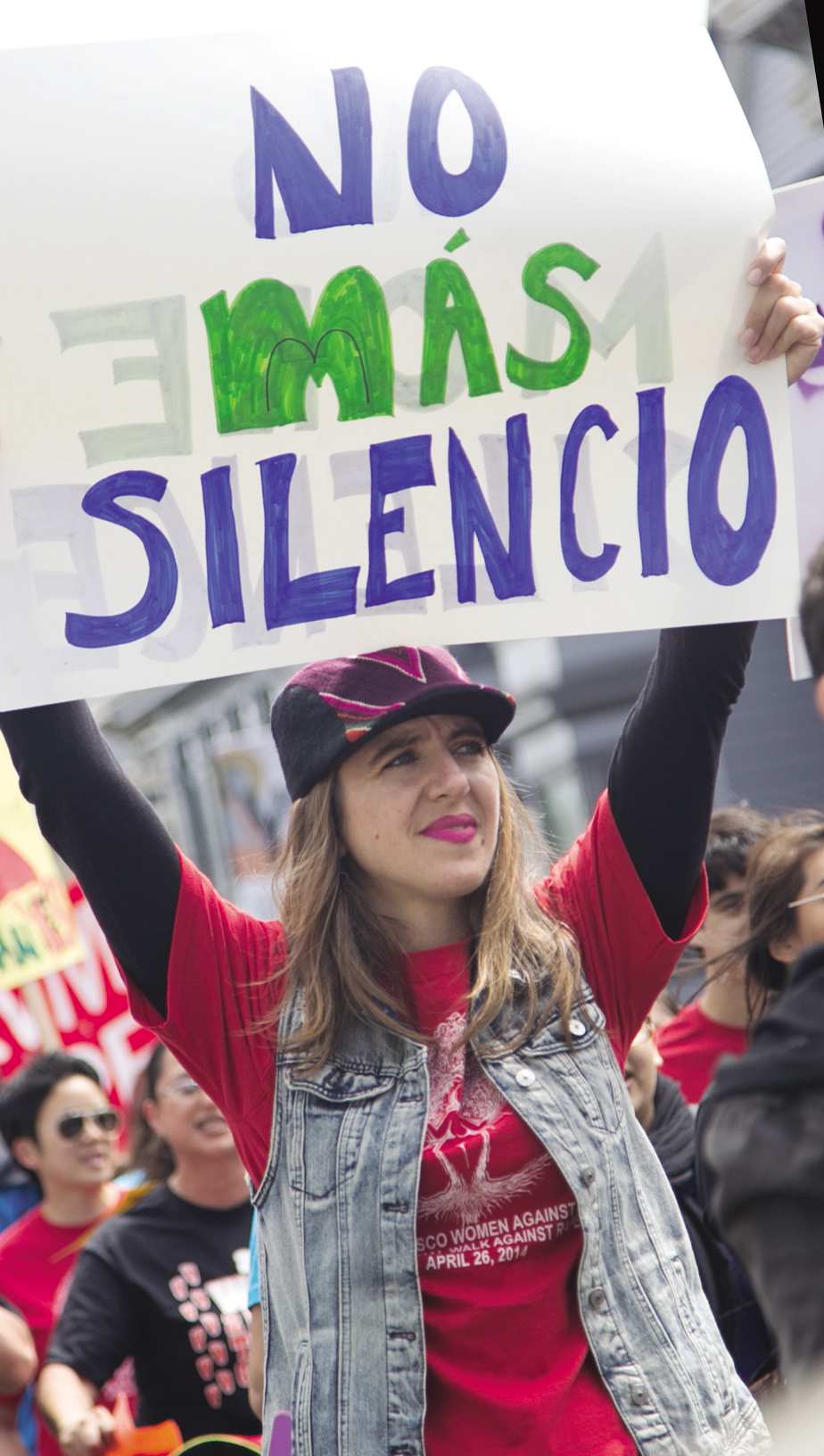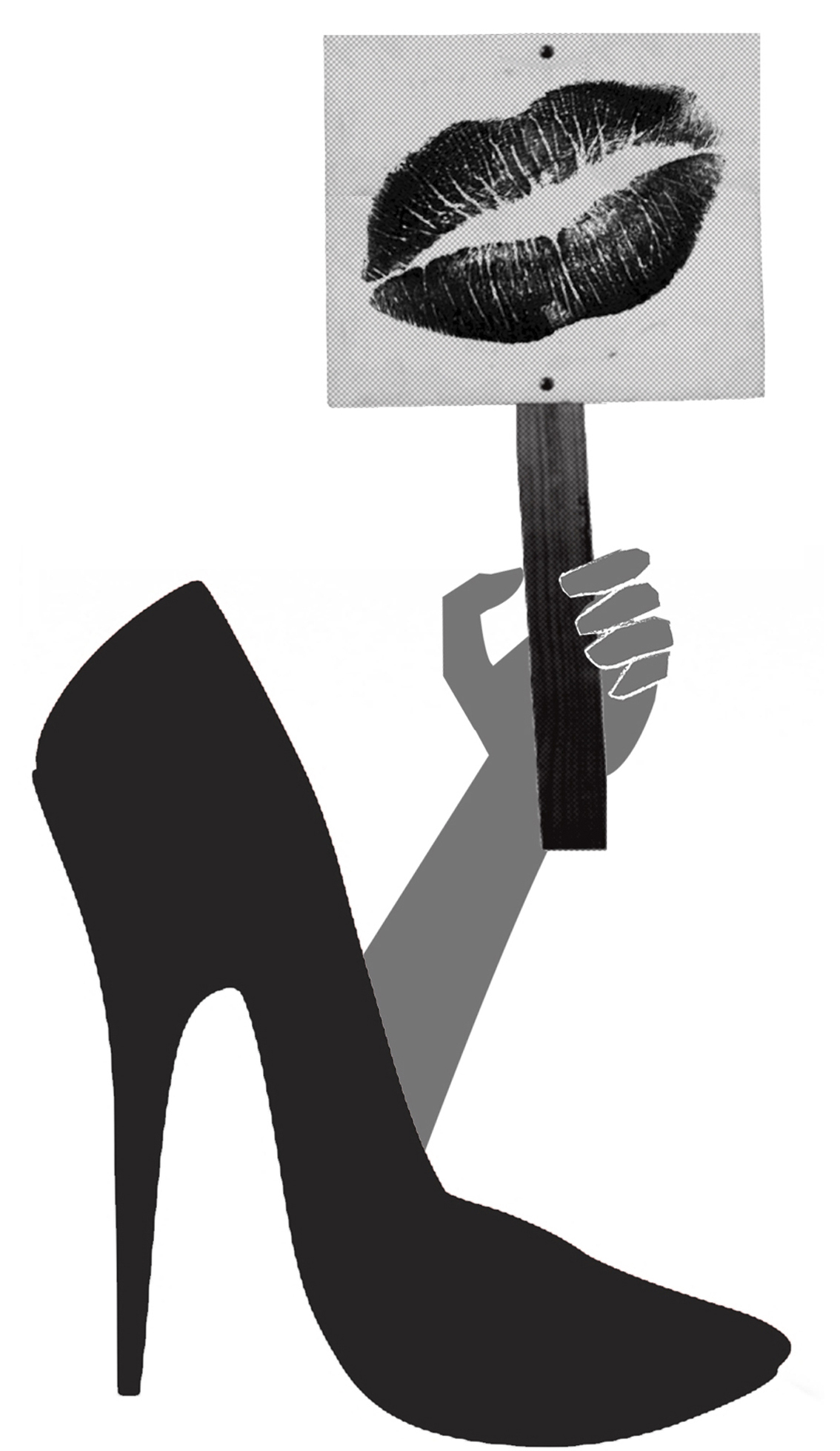We must overcome these toxic perspectives, eradicate oppression

By Ariana Bindman
The Guardsman
“Hey girl, whatʼs your fuckinʼ problem?” said the man in the blue hoodie as he grabbed me by the shoulders, putting me in a situation that I have become all too familiar; situations that I have been told to expect to happen to me since I was a little girl.
“Stop it,” I yelled, as I wrenched out of his grasp and stormed down Geary Street. I clutched my bag to my chest and smoothed down my summer dress.
Sexual violence, which rears its ugly head at one in every four women in the U.S., is a form of oppression that shapeshifts from verbal to physical, and contributes to the core issues of rape culture.
Itʼs appalling that womenʼs bodies are inherently sexualized, and that women are expected to deal with that reality by compromising their very existence.
What a woman wears, how much she has to drink or what time she chooses to walk at night does not excuse any form of violence. Yet, we are conditioned to believe that the victim instigates sexual violence depending on these factors.
Not too long ago, one of my best friends called me crying on the phone at 2 a.m. She was shaken because a group of men threw glass bottles at her for not reciprocating their advances.
The next day, her arms were riddled with red cuts from the glass shards that flew in her direction. The only response my roommate had to this incident was “Well, she should have known better than to wear that party dress while walking home.”
Pathetic excuses likes these only perpetuate the notion that the victim “allowed” these instances to happen to them, and that they were somehow “asking for it.”
Well, I didnʼt ask to be followed and then groped on the street while wearing a shapeless, floor length maxi-skirt.
I didnʼt ask to get told by a man sitting next to me on MUNI that I “looked good” while he stuck his hand between my legs.
My roommate didn’t ask to get chased back into our apartment one night when she decided to take a walk alone.
My friend, who was just 15 years old at the time, didn’t ask to get raped by the Marine who gave her vodka until she passed out.
But the worst part about these situations is that the real perpetrators were never exposed.
While I was getting harassed on MUNI, passengers uncomfortably stared in my direction, but chose not to intervene.
When I overheard my roommate sobbing to her boyfriend about getting chased down the street, he vehemently responded with “bullshit.”
When my friend was caught getting carried home because she was still too drunk from the night before, families in the neighborhood were disgusted by her because they “knew she would do this.”
We must overcome these toxic perspectives revolving around rape culture, and recognize who the real instigators of sexual violence are: the people who think itʼs acceptable to monopolize the body of another human being.
The people who treat other people like resources ought to be exploited and expunged by their consumer until they are left with nothing but guilt and self-loathing.
Ultimately, it’s up to us to eradicate this system of oppression and to speak out against the socially acceptable forms of violence that constantly beleaguer us. In the words of Wendy Davis, “Iʼll not yield.”

